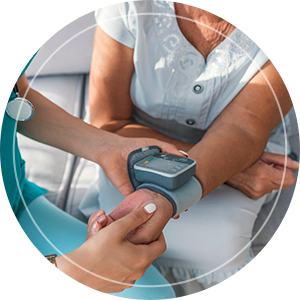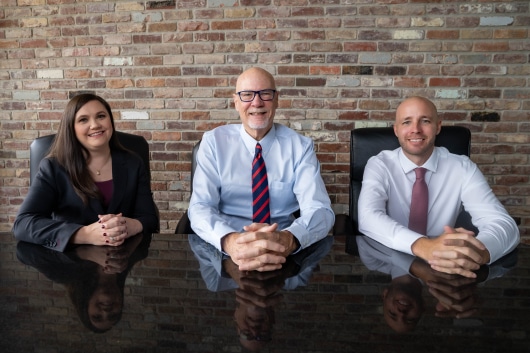
Aging is a natural and unavoidable part of our lives. Receiving poor care, however, is not.
As people age, their needs and ability to care for themselves change too. The transition from an independent, home environment to a care facility can be a very stressful one. We want our aging loved ones to receive the same care and assistance that they provided to us over the years. When shopping around for nursing homes or retirement communities, it’s easy to be taken in by flashy brochures that feature sparkling amenities and exciting activities. The most important part of any transition, however, is making sure that the care your loved ones are receiving is top of the line.
There are few things in life more upsetting than the topic of nursing home or elder care abuse. The thought of our loved ones being taken advantage of in a vulnerable state is enough to worry anyone. Negligence can come in many forms too. Our aging population can experience abuse in various forms:
- verbally
- physically
- sexually
- financially
- and more.
There are so many potential areas of exploitation that it can be overwhelming to try and keep up. Sadly, in our country, nursing home abuse is a serious problem.
Approximately 1 in 10 Americans over the age of 60 have experienced some form of elder abuse, according to the National Council on Aging.
It’s a problem that is continuing to grow. Some serious changes are needed to prevent the numbers from continuing to expand. That is one reason why nursing home abuse lawyers are an important recourse if you suspect that a loved one might be experiencing any form of abuse in their nursing home or assisted living facility.
What is Nursing Home/Elder Care Abuse?
We know that it’s a problem, but how exactly do we recognize it when it’s happening?
The Elder Justice Roadmap, an initiative funded by the U.S. Department of Justice, defines elder abuse as: “physical, sexual, or psychological abuse, as well as neglect, abandonments, and financial exploitation of an older person by another person or entity, that occurs in any setting (e.g. home, community, or facility), either in a relationship where there is an expectation of trust and/or when an older person is targeted based on age or disability.”
 When we think of abuse, we often think primarily of its physical or sexual characteristics. For vulnerable, aging Americans, this is only one small aspect of a much larger problem. Physical or sexual abuse is a tragic occurrence. However, it’s not the only form of abuse that we should be aware of when considering the care of our loved ones.
When we think of abuse, we often think primarily of its physical or sexual characteristics. For vulnerable, aging Americans, this is only one small aspect of a much larger problem. Physical or sexual abuse is a tragic occurrence. However, it’s not the only form of abuse that we should be aware of when considering the care of our loved ones.
Nursing home abuse victims need strong legal advocates. Get the help you need today.
Types of Elder Care Abuse
As we discussed above, there are many ways that caretakers abuse the elderly in their care. It’s important that we are mindful of all the ways that others take advantage of the vulnerable so that we can prevent it from happening to those we care about.
Nursing Home Abuse comes in a variety of forms, such as:
- Physical Abuse
- Sexual Abuse
- Emotional Abuse
- Willful or Passive Neglect
- Financial Exploitation
- Isolation or Confinement
It’s important to note that this list is not exhaustive. These are just some of the most common ways that we see elder abuse play out.
Physical Abuse
Physical abuse generally refers to the infliction of pain or injury upon an elder by their caretaker. It can be one of the easiest forms of abuse for the loved ones of the victim to recognize. It’s also the most commonly reported.
Victims of physical abuse often display:
- welts
- bruises
- unexplained injuries
- persistent pain
- and more.
Pay attention to any of these signs when visiting your loved ones at a care facility. They may be victims of physical abuse at the hands of a nursing home staff member.
Elders who experience physical abuse, even of a minor nature, have a 300% higher risk of death in comparison to those who have not been victims of abuse.
Sexual Abuse
Sexual abuse refers to touching, fondling, intercourse, or any other sexual activity with an elderly patient when they are
- unable to understand
- unwilling to consent
- or physically forced.
Elders experiencing sexual abuse at the hands of a caretaker also have an increased susceptibility to sexually transmitted diseases (STDs).
Emotional Abuse
When we talk about the emotional abuse of our elderly population, we’re referring to
- verbal assaults
- threats
- harassment
- or intimidation.
Emotional abuse can have long-term effects on the mental health of the elderly in nursing homes or elder care facilities.
Consistent exposure to emotional abuse at the hands of a caretaker can lead to a rapid decline in the mental health of elderly patients. The words spoken by caretakers can do irreparable damage to patients in their care.
Willful or Passive Neglect
Sometimes the abuse of our loved ones is done through malicious and intentional actions. But sometimes neglect comes through a passive lack of care.
Passive neglect refers to a failure to provide basic standards of care. Any patient in the care of a nursing home facility should have access to their basic needs. If the facility does not provide your loved ones with
- food,
- clothing
- shelter
- medical assistance
- and other basic necessities,
there is a serious problem. Passive neglect can be a result of apathetic caretakers. However, it can also be a result of an understaffed or underfunded care facility. In either case, it’s unacceptable.
Willful neglect or deprivation is when an elderly individual is actively denied access to the same basic necessities above. An older patient should always have access to the care they have a legal right to receive.
Financial Exploitation
Financial exploitation is the misuse of an elderly patient’s resources. It’s a sad fact of life that some people will target the vulnerable for their own financial gain. Research shows that patients in an elder care facility are far more likely to suffer financial losses.
The financial abuse of the elderly also has an adverse effect on our economy. Financial abuse costs older Americans $2.6 billion annually, according to the National Center on Elder Abuse. The victims of financial abuse also have a greater reliance on federal healthcare programs like Medicaid, and the costs are passed on to taxpayers.
Isolation or Confinement
If you’re loved one is being physically restrained or isolated from the general population for non-medical reasons, they’re experiencing another form of care facility abuse.
Isolation and confinement can also have disastrous effects on the physical and mental health of eldercare patients.
Identifying Nursing Home or Elder Care Abuse
As elderly abuse takes on so many forms, it can be easily missed. While some forms of abuse leave physical signs, others can be harder to diagnose. Is the mental decline of your loved one a natural response to aging, or is it spurred on by abuse at the hands of a caretaker?
The first thing to note is that elder care abuse is massively under-reported.
According to the New York State Elder Abuse Prevalence Study, for every case known to programs and agencies, 24 were unknown.
That means that only 1 in 25 cases are reported. That’s not even to mention how many cases are actually being dealt with and resolved. It turns out, we aren’t even aware of how big the problem is in our country.
Identifying potential abuse in a nursing home or elder care facility requires keen observation. We recommend a “surprise” visit to the care facility that your loved one resides at now and then. This allows you to see how the elder care patient is actually being treated on a daily basis when prying eyes aren’t around.
Identifying Physical Abuse
Physical abuse signs are often the easiest to recognize. If you notice any
- bruises
- burns
- abrasions
- or injuries
that weren’t there on your last visit, you may have a problem. The symptoms of neglect are often physical and can be easy to spot as well. If you noticed your loved one has
- bedsores
- untreated medical issues
- or poor basic hygiene,
they may be a victim of neglect.
Identifying Emotional Abuse
For emotional abuse, the symptoms can be harder to notice.
- Have you noticed an unexpected decline in the patient’s mental health?
- Are they retreating from social interaction?
- Are they inexplicably argumentative or combative with their caregiver?
These are signs you should be on high alert for. While they may be a natural symptom of aging, they can also be a warning sign for serious abuse.
Identifying Financial Abuse
You know your loved ones, and you probably have a good idea of their financial security. If a loved one in the care of a nursing home or assisted living facility is suddenly displaying signs of financial need, that may be a red flag for financial exploitation.













